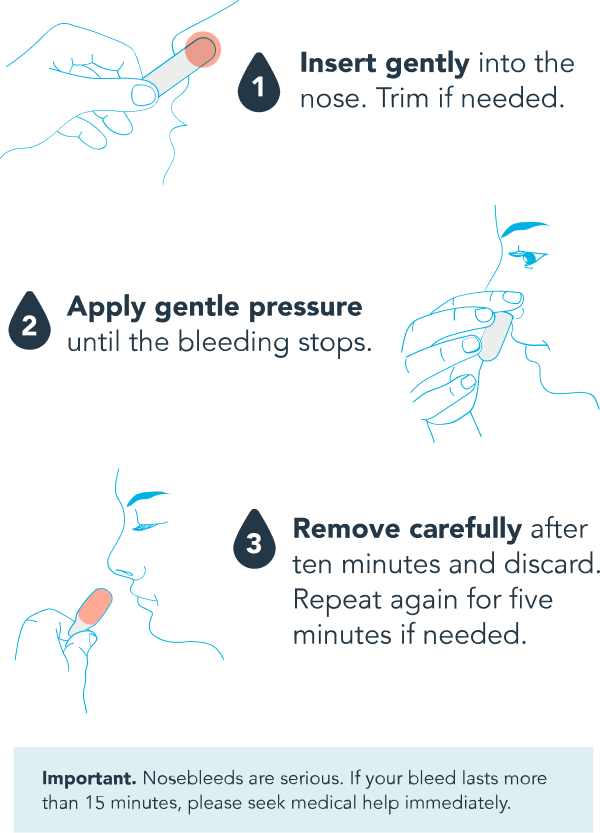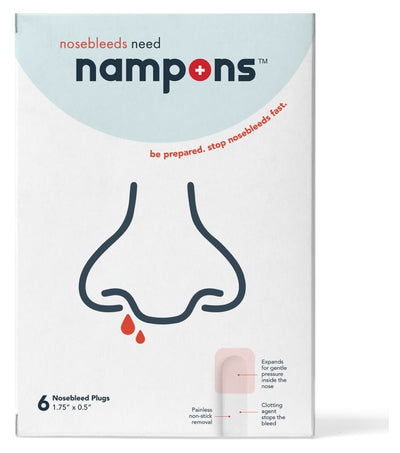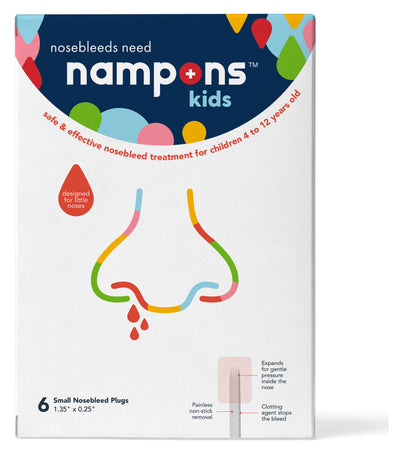Causes, treatment & prevention of nosebleeds from allergies and sinus
Allergies and sinus infections go hand and hand with nosebleeds, which occur as an almost natural reaction to an allergic attack. Ironically, the medications we use to treat allergies also cause nosebleeds! Understanding the causes, ways to prevent them from happening and the recommended treatment opens can ensure you're better prepared.
-
Causes
Nosebleeds occur when the blood vessels in the nose burst and bleed. The lining of the nasal cavity is very thin and sensitive, so anything that makes the blood vessels swell or lining more brittle increase your odds of a nosebleed.
Also, exposure to allergens, such as pollen or dust during Spring and Fall allergy seasons, can irritate your nose. That's why they are often called "irritants." The common reaction to these irritants is to sneeze or blow your nose, two more activities with also can lead to a random nosebleed.
-
- Allergy Attacks. When you have an allergic attack, the body reacts, often releasing what are calling "histamines." This reaction can cause the blood vessels to expand, which is why you get a runny or congested nose. This expansion also increases your odds of a nosebleed.
- Allergy Medicines. Allergy medicines, such as Allegra or Claritin, are designed to fight the allergic attack. While this might dry up congestion or a runny nose, it also dries up the nasal walls - causing, you guessed it - more nosebleeds!

Proper Treatment
The Old Way
Most people grow up thinking that a nosebleed rarely happens and, when it does, use a tissue (or even a tampon!) But 1 in 6 people get nosebleeds every year, and "cotton-based" products are not made for stopping blood. Worse, they can often irritate the nose, making things worse. Click here to learn more.
The Recommended Way
For 20 years, hospitals, doctors and ENTs have been using nasal plugs or "nasal tampons," such as Nampons™, in a clinical setting to stop nosebleeds fast and with far less mess. Nampons™ now offers this same treatment over-the-counter, making them the preferred treatment method used by thousands.
-
Prevention
During allergy season, nosebleeds become common place. Since they can happen to anyone at any time, and often in the most embarrassing situations, taking steps to help reduce the risk of them ever happening is just good advice.
Of course, you should always be prepared, just in case. Just like you have Band-Aids™ for cuts and Benadryl in case of an allergy attack, you should have a box of Nampons™ in your car, purse of medicine cabinet so you can deal with the random nosebleed and get on with your day.
-
- Avoid your allergens. The most obvious and important way to prevent nosebleeds. If you know what your triggers are, try to avoid them.
- Use a saline spray. Saline sprays keep the nose from drying out - an unfortunate side effect of most antihistamine allergy medicines.
- Blow gently. If you do have to blow your nose, do it gently. A sneeze can reach speeds of 100 mph, so that little nose of yours is already going through a lot of turbulence!
- Check your medications. Some medications may dry you out more than others. If you find yourself getting chronic, allergy induced nosebleeds, try switching to a different medicine for your allergies or sinus issues.


